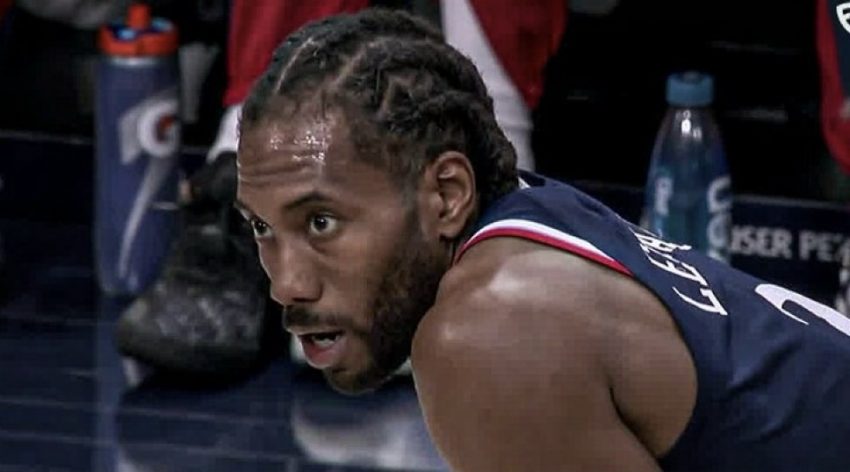In a startling revelation that has sent shockwaves through the NBA community, investigative journalist Pablo Torre has uncovered a controversial $28 million endorsement deal involving Los Angeles Clippers star Kawhi Leonard and a company allegedly tied to a massive fraud scheme. The deal, facilitated through KL2 Aspire LLC, is now under scrutiny for potentially circumventing the NBA’s strict salary cap regulations, with Clippers owner Steve Ballmer’s involvement adding another layer of complexity to the story.
According to Torre’s investigation, Leonard signed the endorsement agreement with KL2 Aspire LLC, a subsidiary of Aspiration, a company that promised to offset carbon emissions through tree planting but was later exposed as part of a $248 million fraud. The co-founder of Aspiration pleaded guilty to charges related to this scheme, highlighting the dubious nature of the enterprise. What makes this deal particularly noteworthy is the claim that it was funded by a $50 million investment from Steve Ballmer, the wealthiest owner in sports and a key figure in the Clippers’ franchise.
The investigation suggests that this arrangement may have been a strategic move to navigate around the NBA’s salary cap, which limits how much teams can spend on player salaries. By channeling funds through an endorsement deal with a third party, the Clippers could potentially have provided Leonard with additional compensation without directly violating league financial rules. This tactic, if proven, would represent a significant breach of the league’s competitive balance principles.
Torre’s findings are supported by a statement from a former Aspiration employee, who described the deal as a “no-show job,” implying that Leonard received the substantial sum without any tangible marketing or promotional obligations. This revelation has raised eyebrows about the ethics and legality of such financial maneuvers in professional sports.
In response to these allegations, the Los Angeles Clippers issued a statement denying any wrongdoing. “Neither Mr. Ballmer nor the Clippers circumvented the salary cap or engaged in any misconduct related to Aspiration. Any contrary assertion is provably false,” the statement read. This denial, however, does little to quell the growing concerns among fans, analysts, and league officials about the integrity of the NBA’s financial system.
The implications of this story extend beyond the individual players and teams involved. It underscores the ongoing challenge of maintaining fairness and transparency in a league where massive financial stakes are at play. The NBA’s salary cap is designed to ensure competitive balance, preventing wealthier teams from dominating the league through sheer financial power. If teams can exploit loopholes by funnelling money through endorsement deals with questionable companies, it could undermine the very foundation of the league’s economic structure.
As the story unfolds, the NBA and its stakeholders will likely face pressure to investigate these claims thoroughly. The league’s reputation for upholding strict financial regulations is at stake, and any evidence of circumvention could lead to significant penalties for the Clippers and potentially reshape how teams approach player compensation in the future.
For now, the narrative around Kawhi Leonard’s tenure with the Clippers has taken a dramatic turn. Once celebrated for his on-court prowess, Leonard now finds himself at the center of a controversy that challenges the ethics of his off-court dealings. As fans and analysts digest this information, the question remains: how far will teams go to secure their stars, and at what cost to the integrity of the game?


